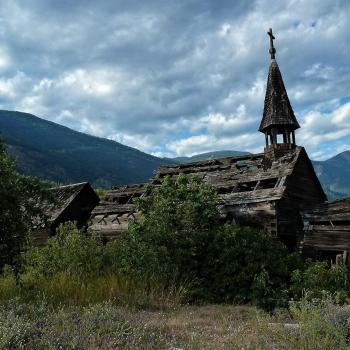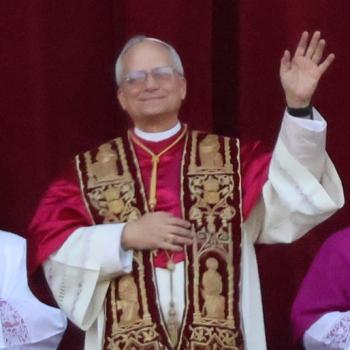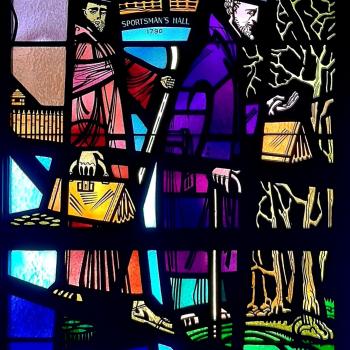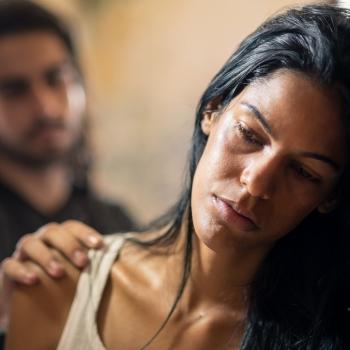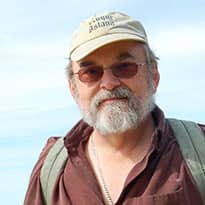Over the weekend I listened to a very interesting talk by British Pagan and scholar Christina Oakley, courtesy of Wild Hunt. She was speaking on major issues in contemporary Pagan theology. My own thinking was stimulated and enriched by her discussion of several issues I had never given much thought to. While my own views are sometimes different on these subjects (get two Pagans together and often three views emerge) I think her talk was well worth my time. Thanks for bringing it to my attention, Jason.
Oakley brought up one issue I have long pondered, one to which I want to give a different but I think complementary twist. And that is possible avenues for future development among Pagans, assuming we continue to grow.
As she described it, when Witches first emerged into general view in 1950s England, they had an edgy image as those who lived and acted on the outskirts of mainstream society. Many had long involvement with the occult, some were nudists, and their sexual attitudes were excitingly racy to the mainstream. They attracted people similarly willing to explore beyond many socially taken for granted boundaries.
As the NeoPagan community has grown and prospered, we have seen the increasing mainstreaming of NeoPagans. We are legitimate in a way that was not the case when I attended my first Sabbat decades ago. Wiccans have lost that edgy image for a great many Americans and, I gather from her talk, for the Brits as well.
This is all to the good in terms of being able to safely parent as a Pagan, keep your job, and enjoy the same liberties followers of more culturally orthodox paths take for granted. It is absolutely necessary if we are to become a respected part of American society. And yet...
Much Ado About Nothing?
If by becoming an accepted part of American society we simply become a nominally polytheistic version of the same, it seems like our path to respectability is a religious version of Shakespeare's "Much Ado About Nothing." In my view, Christianity is already polytheistic—different Christians worship different deities all while claiming theirs is the One True One. Christians who change their forms of Christianity by very much—say from Baptist to Orthodox—engage in what I call serial monotheism.
The risks of mainstreaming are real. I remember attending a Buddhist wedding years ago in Berkeley. This wedding took place within the Japanese American Buddhist community, which had long existed here on the West Coast. Their meeting place was a building with rows of seats like a church and an altar largely indistinguishable from a Protestant one except for having different symbols. It appeared mostly indistinguishable from many weddings I had previously attended. It was all very comfortable and normal, and in retrospect, that bothers me. Is the price for becoming accepted—to become largely irrelevant culturally and spiritually, at least when viewed from the outside?
Certainly the Christian group that has in my opinion done the most to improve conditions for others and best practice what they preach was also most effective when they refused major compromises the better to fit in. The Quakers were major forces for ending slavery while being actively discriminated against in England. They played a major, perhaps the major, role in ending a practice as old as civilization itself often while prohibited from holding national political office because of their religion. And the Quakers were involved in more than just abolitionism.
Oakley thought our edginess today remained mostly in our championship of sexual minorities such as gays, bi and transsexuals. Pagans are more accepting of people's sexuality in the many ways it manifests, and this is a good thing. I agree, but...
That is a tiny part of what separates historically Pagan perspectives from the monotheistic ones, and desirable as it is, modern Christianity had already made the key step in this process of accepting a diversity of gendered relationships when many Christians grasped that love was the most important part of marriage.
Gay marriage and growing respect for transsexual and bisexual people is in many ways a spin off from that initial step forward, a step with which we had nothing to do. We are the religious community most able to ally with and recognize as legitimate these alternative ways of being a gendered being, but I believe this process would be happening about as rapidly anyway. And I suspect soon it won't be all that edgy with or without Pagan involvement.
Where The Real Edge Lies
Pagans reject the notion of a transcendent deity in favor of the sacred as immanent. This is almost universal. I write "almost" because perhaps somewhere a self-described Pagan exists who disagrees. Orthodox Christians, who have little impact in Western culture, also acknowledge the sacred immanent, though they focus on the transcendent. But Western Christian traditions mostly don't. The world is fallen. We are what is important spiritually.
